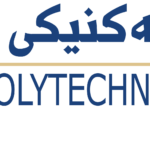- Rand Maurice Aziz
- rand.aziz@epu.edu.iq
- 0751 534 3069
- (Rand Maurice Aziz) M.Sc Thesis Final
-
Polycystic Ovary Syndrome (PCOS) is regarded as a global health problem since its causes and diagnosis have confused many researchers to this day. This study aims to investigate the impact of four important parameters on PCOS in women of Erbil city, including Human Leukocyte Antigen (HLA) represented by the HLA-B*0702 allele, Anti-Follicle Stimulating Hormone (anti-FSH) antibodies, Anti-Luteinizing Hormone (anti-LH) antibodies, and vitamin D3. It is regarded as novel in this field. For this purpose, one hundred blood samples, including EDTA for molecular characterization and serum samples for immunological analysis were collected from (60 PCOS patients and 40 healthy controls) who attended the Maternity Teaching Hospital and some private clinics and hospitals in Erbil City between October 2021 and January 2022. After DNA extraction, all of the extracted DNA samples were genotyped using a PCR-based approach with specific sequence primers. Anti-FSH and anti-LH antibodies serum levels were assessed by Enzyme-Linked Immunosorbent Assays (ELISA), whereas vitamin D3 assessment was done using an Electrochemiluminescence (ECL) technology on a Cobas e411 immunoassay analyzer.
The outcomes of the study, with an odds ratio (OR) of 2.167 at a 95% confidence interval (CI) of 0.8167 to 6.330, signifies a higher risk and suggesting that the syndrome is more common with the HLA-B*0702 allele which is harmful in this case. The serum levels of anti-FSH and anti-LH antibodies in primary infertile PCOS patients were significantly higher than in the control group and secondary infertile PCOS patients. A significant positive linear relationship was also discovered between these antibodies (P-value < 0.0001). Furthermore, anti-FSH antibodies showed a significant positive correlation with FSH, just as anti-LH antibodies did with LH (P-value < 0.01). However, both antibodies demonstrated non-significant positive correlations with the LH/FSH ratio and non-significant negative relationships with vitamin D3 (P-value ≥ 0.05). Hypovitaminosis D3 was observed in most PCOS patients and healthy controls with a significant difference (P-value < 0.01). According to the findings, the HLA-B*0702 allele is linked to PCOS susceptibility and could be employed as an immunogenetic marker. The results also supported the idea that antibodies against follicle-stimulating hormone and luteinizing hormone are naturally found antibodies in PCOS patients rather than signs of autoimmune disease. Women with PCOS are additionally more inclined to develop vitamin D3 deficiency.
- Erbil Technical Health College
- Medical Laboratory Technology
- Immunology
- sally khalil baqer
- sally.40773@gmail.com
- 0772 264 7692
- sally final thesis - Copy
-
Type 2 Diabetes (T2D) is the most common form of diabetes; it develops when pancreatic cells produce an excess amount of insulin, resulting in insulin resistance by peripheral cells. T2D is an illness that caused by interaction between genetics and environmental factors. Genetic factors are involved in the development of T2D and several genetic variants increase the risk to have T2D. The single nucleotide polymorphisms (SNPs) rs1801282 in the Peroxisome Proliferator-Activated Receptors gamma) PPARG (gene and rs9939609 in the Fat mass and obesity associated protein (FTO (gene were discovered to be related to raising the risk of T2D in different populations. This research aimed to discover if rs1801282 in the PPARG gene and rs9939609 in the FTO gene are responsible for increasing the risk of T2D in Kurdistan region. In the current study DNA from 200 unrelated individuals (100 T2D, and 100 non-diabetic control) were genotyped using Allele-specific PCR for both SNPs. The accuracy of the PCR methods used were validated by the Sanger sequencing method.
The association analysis for the rs1801282 (adjusted by sex, age, and BMI) showed significant differences between the cases and the control groups for rs1801282, individuals with genotypes (GG, and GC) had a higher risk of the disease (p-value = 0.0045, OR = 3.96, 95%CI: 1.31-11.94) than genotype (CC). the contrary, there was no significant differences (p value= 0.39) between the case and control groups for the rs9939609 variant in the FTO gene.
The findings in this research suggested that the variant rs1801282 in the PPARG gene was a genetic susceptible SNP in T2D in the Kurdish population, while SNP rs9939609 in the FTO gene was not associated with T2D. Further investigations with larger number samples are required to validate these findings.
- Erbil Technical Health College
- medical laboratory technique
- medical laboratory Technique


